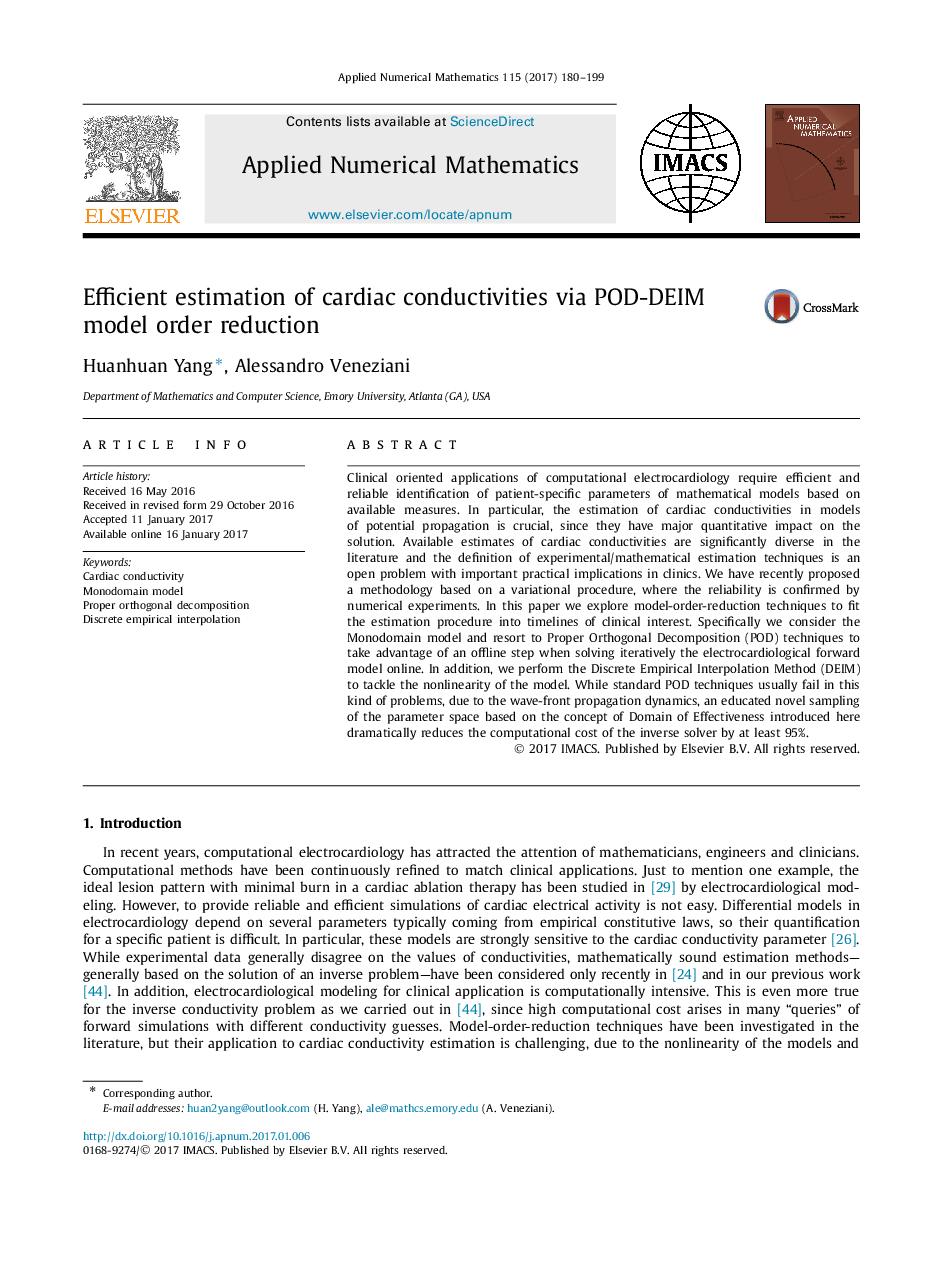| Article ID | Journal | Published Year | Pages | File Type |
|---|---|---|---|---|
| 5776700 | Applied Numerical Mathematics | 2017 | 20 Pages |
Abstract
Clinical oriented applications of computational electrocardiology require efficient and reliable identification of patient-specific parameters of mathematical models based on available measures. In particular, the estimation of cardiac conductivities in models of potential propagation is crucial, since they have major quantitative impact on the solution. Available estimates of cardiac conductivities are significantly diverse in the literature and the definition of experimental/mathematical estimation techniques is an open problem with important practical implications in clinics. We have recently proposed a methodology based on a variational procedure, where the reliability is confirmed by numerical experiments. In this paper we explore model-order-reduction techniques to fit the estimation procedure into timelines of clinical interest. Specifically we consider the Monodomain model and resort to Proper Orthogonal Decomposition (POD) techniques to take advantage of an offline step when solving iteratively the electrocardiological forward model online. In addition, we perform the Discrete Empirical Interpolation Method (DEIM) to tackle the nonlinearity of the model. While standard POD techniques usually fail in this kind of problems, due to the wave-front propagation dynamics, an educated novel sampling of the parameter space based on the concept of Domain of Effectiveness introduced here dramatically reduces the computational cost of the inverse solver by at least 95%.
Related Topics
Physical Sciences and Engineering
Mathematics
Computational Mathematics
Authors
Huanhuan Yang, Alessandro Veneziani,
